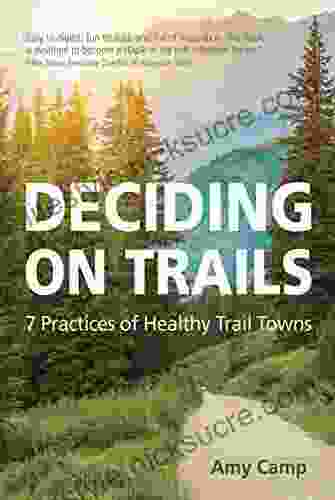Rethinking Criminalization, Privacy, and Consent in Feminist Media Studies

4.4 out of 5
| Language | : | English |
| File size | : | 1386 KB |
| Text-to-Speech | : | Enabled |
| Screen Reader | : | Supported |
| Enhanced typesetting | : | Enabled |
| Word Wise | : | Enabled |
| Print length | : | 240 pages |
Abstract
This article explores the complex relationship between criminalization, privacy, and consent in feminist media studies. It argues that criminalization can be a harmful and counterproductive response to sexual violence and that it is important to rethink how we conceptualize and respond to these issues. The article also discusses the importance of privacy and consent in feminist media studies and how these concepts can be used to empower survivors of sexual violence.
Sexual violence is a pervasive problem that affects people of all genders, races, and sexual orientations. In the United States, one in five women and one in seven men will experience sexual violence in their lifetime. Sexual violence can have a devastating impact on survivors, both physically and emotionally. It can lead to physical injuries, mental health problems, and even death.
In recent years, there has been a growing movement to criminalize sexual violence. This movement has been driven by a desire to hold perpetrators accountable for their actions and to protect survivors from further harm. However, criminalization is a complex and controversial issue. There is no easy answer to the question of whether or not sexual violence should be criminalized.
The Problem with Criminalization
There are a number of problems with criminalizing sexual violence. First, criminalization can be a harmful and counterproductive response to sexual violence. When sexual violence is criminalized, it can lead to survivors being blamed for their own victimization. This can make it difficult for survivors to come forward and report their experiences. It can also lead to survivors being treated as criminals themselves.
Second, criminalization can be ineffective in preventing sexual violence. Studies have shown that criminalization does not deter perpetrators from committing sexual violence. In fact, it can actually increase the likelihood of sexual violence by creating a climate of fear and silence.
Third, criminalization can be biased against marginalized communities. People of color, LGBTQ people, and people with disabilities are disproportionately likely to be arrested and convicted for sexual violence. This is due to a number of factors, including racism, homophobia, and ableism.
Rethinking Criminalization
Given the problems with criminalization, it is important to rethink how we conceptualize and respond to sexual violence. There are a number of alternative approaches to criminalization that can be more effective in preventing sexual violence and supporting survivors.
One alternative approach is to focus on prevention. Prevention programs can teach people about sexual violence, how to avoid it, and how to respond to it. These programs can be effective in reducing the incidence of sexual violence.
Another alternative approach is to focus on victim support. Victim support services can provide survivors with counseling, medical care, and legal assistance. These services can help survivors to heal from the trauma of sexual violence and to rebuild their lives.
Privacy and Consent
Privacy and consent are two important concepts in feminist media studies. Privacy is the right to be free from unwanted intrusion or surveillance. Consent is the voluntary agreement to engage in a sexual activity. Both privacy and consent are essential for protecting survivors of sexual violence.
Privacy is important because it allows survivors to control their own experiences and to make choices about how they want to disclose their experiences to others. Consent is important because it ensures that survivors have agency over their own bodies and that they are not coerced into sexual activity.
In feminist media studies, privacy and consent can be used to empower survivors of sexual violence. By giving survivors control over their own experiences and by ensuring that they have agency over their own bodies, privacy and consent can help survivors to heal and to rebuild their lives.
Criminalization is a complex and controversial issue. There is no easy answer to the question of whether or not sexual violence should be criminalized. However, it is important to remember that criminalization can be a harmful and counterproductive response to sexual violence. There are a number of alternative approaches to criminalization that can be more effective in preventing sexual violence and supporting survivors. These alternative approaches should be explored further in feminist media studies and in public policy.
4.4 out of 5
| Language | : | English |
| File size | : | 1386 KB |
| Text-to-Speech | : | Enabled |
| Screen Reader | : | Supported |
| Enhanced typesetting | : | Enabled |
| Word Wise | : | Enabled |
| Print length | : | 240 pages |
Do you want to contribute by writing guest posts on this blog?
Please contact us and send us a resume of previous articles that you have written.
 Fiction
Fiction Non Fiction
Non Fiction Romance
Romance Mystery
Mystery Thriller
Thriller SciFi
SciFi Fantasy
Fantasy Horror
Horror Biography
Biography Selfhelp
Selfhelp Business
Business History
History Classics
Classics Poetry
Poetry Childrens
Childrens Young Adult
Young Adult Educational
Educational Cooking
Cooking Travel
Travel Lifestyle
Lifestyle Spirituality
Spirituality Health
Health Fitness
Fitness Technology
Technology Science
Science Arts
Arts Crafts
Crafts DIY
DIY Gardening
Gardening Petcare
Petcare Janet Engle
Janet Engle Gal Dem
Gal Dem Lars Andersen
Lars Andersen C L Simchick
C L Simchick Joe Nickell
Joe Nickell Susan White
Susan White Jameson M Wetmore
Jameson M Wetmore Eric Zweig
Eric Zweig Paul Kaplowitz
Paul Kaplowitz Douglas Wilson
Douglas Wilson Glenn Stout
Glenn Stout Paul Kockelman
Paul Kockelman Charles Thompson
Charles Thompson Cheri Rae
Cheri Rae Joseph Klaits
Joseph Klaits Dr Scott A Johnson
Dr Scott A Johnson Joe Dan Lowry
Joe Dan Lowry Sarah Morgan Haydock
Sarah Morgan Haydock Matthew L Martin
Matthew L Martin Ruta Nonacs
Ruta Nonacs Ronda Rousey
Ronda Rousey Gary Wiener
Gary Wiener Jennifer Margulis
Jennifer Margulis Rose Mannering
Rose Mannering Amy Blakeslee
Amy Blakeslee Sue Monk Kidd
Sue Monk Kidd Robert W D Ball
Robert W D Ball Guillaume Haeringer
Guillaume Haeringer Torey L Hayden
Torey L Hayden Jennifer S Kelly
Jennifer S Kelly Martin Pollizotto
Martin Pollizotto Donovan Hohn
Donovan Hohn Tim Marshall
Tim Marshall Eugenia Viti
Eugenia Viti Michaela Riva Gaaserud
Michaela Riva Gaaserud Benjamin Jelen
Benjamin Jelen Tracy Lorraine
Tracy Lorraine Heather Macfadyen
Heather Macfadyen Jenny Landreth
Jenny Landreth Victor J Stenger
Victor J Stenger Grant Dever
Grant Dever Don Stradley
Don Stradley Reinhold Messner
Reinhold Messner Catherine Ryan Gregory
Catherine Ryan Gregory Ana And Jack Hicks
Ana And Jack Hicks Hadley Wickham
Hadley Wickham Umer W
Umer W Peter Hayes
Peter Hayes Michael Reichert
Michael Reichert Vince Kotchian
Vince Kotchian Amber Lee Sellers
Amber Lee Sellers Cordelia K Castel
Cordelia K Castel Joseph Howse
Joseph Howse Christine Fanthome
Christine Fanthome Tom Colicchio
Tom Colicchio Charles Hall
Charles Hall Jack Tupp
Jack Tupp Jim Santos
Jim Santos Lizabeth Hardman
Lizabeth Hardman Amber Zygutis
Amber Zygutis Philip Gibson
Philip Gibson K M Shea
K M Shea Christina Kamp
Christina Kamp Steven Charleston
Steven Charleston Edward J Denecke
Edward J Denecke Julie Caplin
Julie Caplin Pav Bryan
Pav Bryan Tahlia Kirk
Tahlia Kirk Jon Bonnell
Jon Bonnell Christopher Harlan
Christopher Harlan James P Kelly
James P Kelly Lisa Maloney
Lisa Maloney John L Field
John L Field Mark Stallard
Mark Stallard Stephen M Barr
Stephen M Barr Kate Tietje
Kate Tietje Victoria Richards
Victoria Richards Doug Peterson
Doug Peterson Kumo Kagyu
Kumo Kagyu Summer Michaud Skog
Summer Michaud Skog J L Weil
J L Weil Jack Nisbet
Jack Nisbet George Bernard Shaw
George Bernard Shaw Dolores Kong
Dolores Kong Tabitha Suzuma
Tabitha Suzuma Pamela Lynn
Pamela Lynn Elizabeth S Gilbert
Elizabeth S Gilbert Amber Lia
Amber Lia Rachel Gurevich
Rachel Gurevich Django Paris
Django Paris Nikhil Bhardwaj
Nikhil Bhardwaj Ananda Lowe
Ananda Lowe Roman Gelperin
Roman Gelperin The 60 Minutes Summary
The 60 Minutes Summary Catherine Dees
Catherine Dees Rodney M Howard Browne
Rodney M Howard Browne Gerald Corey
Gerald Corey Shannon O Bourne
Shannon O Bourne Rick Deutsch
Rick Deutsch American Psychological Association
American Psychological Association Christopher Cousteau
Christopher Cousteau Amelia Parker
Amelia Parker Stanley J Farlow
Stanley J Farlow Dave Hanson
Dave Hanson Naomi Oreskes
Naomi Oreskes Cole Hersowitz
Cole Hersowitz Shaun Gallagher
Shaun Gallagher Zeshan Qureshi
Zeshan Qureshi Rich Rousseau
Rich Rousseau John Maxwell Wood
John Maxwell Wood Neville Goddard
Neville Goddard Sandra Bardwell
Sandra Bardwell Topher Donahue
Topher Donahue Erika Napoletano
Erika Napoletano Amber Smith
Amber Smith Kenneth P Stephens
Kenneth P Stephens Amy Bizzarri
Amy Bizzarri Tom Patri
Tom Patri Paul Graham
Paul Graham Clancy Cavnar
Clancy Cavnar Joseph Mcmoneagle
Joseph Mcmoneagle Peter Larson
Peter Larson Bethanne Kim
Bethanne Kim Amby Cooper
Amby Cooper Amit Saha
Amit Saha Kevin Stiegelmaier
Kevin Stiegelmaier Danny Dreyer
Danny Dreyer Meikang Qiu
Meikang Qiu Marshall Goldsmith
Marshall Goldsmith Rob Antoun
Rob Antoun Mark W T Harvey
Mark W T Harvey Chloe Gong
Chloe Gong John Ferrell
John Ferrell Mark Worden
Mark Worden Kristine Kathryn Rusch
Kristine Kathryn Rusch Rosanna Davison
Rosanna Davison Brendan Leonard
Brendan Leonard Jason Thompson
Jason Thompson Don Mann
Don Mann Michael Abayomi
Michael Abayomi Amber Foster
Amber Foster Josephine Atluri
Josephine Atluri Rob Fisher
Rob Fisher Stephen Goodwin
Stephen Goodwin Tavi Gevinson
Tavi Gevinson Valerie Bass
Valerie Bass Kris Leonard
Kris Leonard Autumn Jordon
Autumn Jordon Sarah Sumbal
Sarah Sumbal Sandra Luna Mccune
Sandra Luna Mccune Isabella Krystynek
Isabella Krystynek Anthony Horowitz
Anthony Horowitz Kathy A Zahler
Kathy A Zahler Deborah J Rumsey
Deborah J Rumsey Jeff Gaudette
Jeff Gaudette Harley Reid
Harley Reid Derrick Jensen
Derrick Jensen Byron Nelson
Byron Nelson Mariano Anaya
Mariano Anaya Brian Pace
Brian Pace Ellie Wood
Ellie Wood Josh Taylor
Josh Taylor Claudia J Carr
Claudia J Carr Patrick O Sullivan
Patrick O Sullivan Brian Klaas
Brian Klaas Fred Pyrczak
Fred Pyrczak L Frank Baum
L Frank Baum David Yoon
David Yoon Robyn Davidson
Robyn Davidson Derek Thompson
Derek Thompson Stephenie Meyer
Stephenie Meyer Robb Walsh
Robb Walsh Louise Bates Ames
Louise Bates Ames Vinod Kumar Khanna
Vinod Kumar Khanna Candy Verney
Candy Verney Chad Ford
Chad Ford Julie Barlow
Julie Barlow James W Williams
James W Williams Anthony Haynes
Anthony Haynes Arlene Blum
Arlene Blum Steve Greenberg
Steve Greenberg Martin Williams
Martin Williams Kathy Spratt
Kathy Spratt Nina Freudenberger
Nina Freudenberger Marco Ferrero
Marco Ferrero American Baseball Coaches Association
American Baseball Coaches Association Frederick Lenz
Frederick Lenz Terry Wieland
Terry Wieland Robert A Weinberg
Robert A Weinberg P Aarne Vesilind
P Aarne Vesilind Ned Seaton
Ned Seaton Jack Ewing
Jack Ewing Denise Ni
Denise Ni Joseph Conrad
Joseph Conrad Paul Dickson
Paul Dickson Eric E Bowne
Eric E Bowne Tijan
Tijan Candida Lawrence
Candida Lawrence Mitt Romney
Mitt Romney Deborah Lipsky
Deborah Lipsky Holly Herrick
Holly Herrick Pico Iyer
Pico Iyer Deborah Vinall Psyd Lmft
Deborah Vinall Psyd Lmft Kyle Hunt
Kyle Hunt Jeremy J Baumberg
Jeremy J Baumberg Jerry D Moore
Jerry D Moore Tom Deck
Tom Deck John Bingham
John Bingham Art Star
Art Star Anna B Doe
Anna B Doe Amy Brown
Amy Brown Tamora Pierce
Tamora Pierce Paul Wieland
Paul Wieland Melody Schreiber
Melody Schreiber Amie Kaufman
Amie Kaufman Patricia L Papernow
Patricia L Papernow Jean Rose
Jean Rose Amante P Marinas
Amante P Marinas Sandra T Barnes
Sandra T Barnes Jonathon Miller Weisberger
Jonathon Miller Weisberger Joan Freeman
Joan Freeman Amber O Neal Johnston
Amber O Neal Johnston John A Buehrens
John A Buehrens Kezia Endsley
Kezia Endsley Angela Moore
Angela Moore Laurie A Watkins
Laurie A Watkins Marina Robb
Marina Robb Suzanne Stabile
Suzanne Stabile Traci Gormley
Traci Gormley Silvia Botros
Silvia Botros Kieron Gillen
Kieron Gillen Gail Maccoll
Gail Maccoll Sheri Van Dijk
Sheri Van Dijk Brian Kateman
Brian Kateman Malba Tahan
Malba Tahan Amy Baldwin
Amy Baldwin Erik Qualman
Erik Qualman Saleh Alkhalifa
Saleh Alkhalifa Jd Mader
Jd Mader Vivian Vande Velde
Vivian Vande Velde Jan Marie Mueller
Jan Marie Mueller June Cl Tan
June Cl Tan Dana Obleman
Dana Obleman Rick Stanton
Rick Stanton Nicholas A Christakis
Nicholas A Christakis Jean Van T Hul
Jean Van T Hul William Stillman
William Stillman Laura Slinn
Laura Slinn Nikala Smith
Nikala Smith William Bohan
William Bohan Krystal Sutherland
Krystal Sutherland Donna Williams
Donna Williams Stephen Barr
Stephen Barr Alan I Marcus
Alan I Marcus Bridget Ericsson
Bridget Ericsson Ryan Gray
Ryan Gray Cody Monk
Cody Monk Chad Starkey
Chad Starkey Amiee Mueller
Amiee Mueller Sharon K Zumbrunn
Sharon K Zumbrunn Gia Giasullo
Gia Giasullo Sean Go
Sean Go Clotaire Rapaille
Clotaire Rapaille Randy Schultz
Randy Schultz William Glasser M D
William Glasser M D Chris Irons
Chris Irons Nicholeen Peck
Nicholeen Peck Redmond O Hanlon
Redmond O Hanlon Theodore Sider
Theodore Sider Paul Oliver
Paul Oliver Jonathan Bartlett
Jonathan Bartlett Randall E Schumacker
Randall E Schumacker Sian Warriner
Sian Warriner Muhammad Vandestra
Muhammad Vandestra Richard Wagamese
Richard Wagamese Eric Tyndall
Eric Tyndall Amy Perry
Amy Perry Jessica Cunsolo
Jessica Cunsolo Heidi J Larson
Heidi J Larson Liz Fosslien
Liz Fosslien Stephen Walker
Stephen Walker Matthew Lombardi
Matthew Lombardi Vicki Hearne
Vicki Hearne Buck Tilton
Buck Tilton Nisha Garg
Nisha Garg K F Breene
K F Breene Jack Weatherford
Jack Weatherford Amir Alexander
Amir Alexander Gina Chen
Gina Chen Pinky Mckay
Pinky Mckay Christopher E Larsen
Christopher E Larsen C W Lockhart
C W Lockhart Howard J Meditz
Howard J Meditz Jason Borte
Jason Borte Don Orwell
Don Orwell Stanley I Greenspan
Stanley I Greenspan Bill Carter
Bill Carter Helena P Blavasky
Helena P Blavasky Frank Nappi
Frank Nappi Amy Camp
Amy Camp Marit Weisenberg
Marit Weisenberg Amelia Freer
Amelia Freer Jean Christie Ashmore
Jean Christie Ashmore William G Dever
William G Dever Steven C Hayes
Steven C Hayes Victoria Wood
Victoria Wood Karen Deerwester
Karen Deerwester Elise Christie
Elise Christie Joseph Wayne Smith
Joseph Wayne Smith Sterling Test Prep
Sterling Test Prep Julie Mosier
Julie Mosier Ruth M Tappen
Ruth M Tappen James E Packer
James E Packer Leslie Sansone
Leslie Sansone Dima Zales
Dima Zales Dom Amore
Dom Amore Cynthia Gabriel
Cynthia Gabriel David Burch
David Burch Dan Schlossberg
Dan Schlossberg Alex Polyakov
Alex Polyakov Amira Mikhail
Amira Mikhail Nick Kolenda
Nick Kolenda Courtney Defeo
Courtney Defeo American Math Academy
American Math Academy Mark Taylor
Mark Taylor Tanya Turner
Tanya Turner Dr Elizabeth Cherevaty Nd Rac
Dr Elizabeth Cherevaty Nd RacK D
 Sarah Dessen
Sarah Dessen Temple Grandin
Temple Grandin Philippa Langley
Philippa Langley Kate Fox
Kate Fox Ray Mancini
Ray Mancini Mike Adamick
Mike Adamick Jenni Hicks
Jenni Hicks Kresley Cole
Kresley Cole Tom Taulli
Tom Taulli Dr Bob Rotella
Dr Bob Rotella Dan Abnett
Dan Abnett Jake Maddox
Jake Maddox Stephen J Collier
Stephen J Collier Diane Greer
Diane Greer Spike Dykes
Spike Dykes Norman Doidge
Norman Doidge Erica T Lehrer
Erica T Lehrer Marisa Anne Bass
Marisa Anne Bass Susanna Heli
Susanna Heli Tim Hornbaker
Tim Hornbaker Jack Falla
Jack Falla Alex Stone
Alex Stone Kate Parham Kordsmeier
Kate Parham Kordsmeier Kasie West
Kasie West James Mullaney
James Mullaney Kathleen M Stacy
Kathleen M Stacy Michael Ondaatje
Michael Ondaatje Anne Chambers
Anne Chambers Sarah J Maas
Sarah J Maas Warren B Powell
Warren B Powell Joel Cotton
Joel Cotton David Guymer
David Guymer Wade Rouse
Wade Rouse Therese A Rando
Therese A Rando Nathan Belofsky
Nathan Belofsky Charles J Alsheimer
Charles J Alsheimer Peter Worley
Peter Worley Don Bowers
Don Bowers Rosalind Wiseman
Rosalind Wiseman Amelia Edith Huddleston Barr
Amelia Edith Huddleston Barr Sheena Johnstone
Sheena Johnstone Trent Shelton
Trent Shelton Andy Couturier
Andy Couturier Shanna Cunning
Shanna Cunning Michael Winkelman
Michael Winkelman Amy B Middleman
Amy B Middleman David Ranney
David Ranney Michael Cosgrove
Michael Cosgrove Erin Chack
Erin Chack Michael Parker Pearson
Michael Parker Pearson Michael R Poll
Michael R Poll Desi Northup
Desi Northup Theresa Y Wee M D
Theresa Y Wee M D Jeffrey Steadman
Jeffrey Steadman Timothy Malcolm
Timothy Malcolm Jeanne Ryan
Jeanne Ryan Amy Adele Hasinoff
Amy Adele Hasinoff John Jacobs
John Jacobs Amie Lands
Amie Lands Maria Youtman
Maria Youtman Laekan Zea Kemp
Laekan Zea Kemp Jacob Bronowski
Jacob Bronowski Julie Schacht Sway
Julie Schacht Sway Shere Hite
Shere Hite Larry K Brendtro
Larry K Brendtro Katherine Kurtz
Katherine Kurtz Test Masters
Test Masters Mac Fortner
Mac Fortner Joe E Harvey
Joe E Harvey Jeff Martone
Jeff Martone Andrey Ryanskiy
Andrey Ryanskiy Jan E Stets
Jan E Stets Devin Olsen
Devin Olsen Laini Taylor
Laini Taylor David Salsburg
David Salsburg Jayson Gaddis
Jayson Gaddis Paul Schwartz
Paul Schwartz Theresa I Soto
Theresa I Soto A Sorority Of Mothers
A Sorority Of Mothers Elizabeth Lim
Elizabeth Lim Thom Hartmann
Thom Hartmann J Marin Younker
J Marin Younker Joellen Patterson
Joellen Patterson Johan Norberg
Johan Norberg Jocelyn Goodwin
Jocelyn Goodwin Cathy Williams
Cathy Williams Ruth Nestvold
Ruth Nestvold David Grinspoon
David Grinspoon Garrett M Fitzmaurice
Garrett M Fitzmaurice Swede Burns
Swede Burns Tyler Simmons
Tyler Simmons Toni Tone
Toni Tone Brittany Clair
Brittany Clair Camille Glenn
Camille Glenn Cookie O Gorman
Cookie O Gorman Carlo Buzzichelli
Carlo Buzzichelli Kathleen Glasgow
Kathleen Glasgow Josiah Hesse
Josiah Hesse William Rosen
William Rosen Joseph P Weir
Joseph P Weir Ignatius Donnelly
Ignatius Donnelly Mark Turley
Mark Turley Thomas J Whalen
Thomas J Whalen Henry A Zumbrun 2
Henry A Zumbrun 2 Wendy Margolis
Wendy Margolis Chris Carlsson
Chris Carlsson E T Bryant
E T Bryant Lisa Zimmer Hatch
Lisa Zimmer Hatch Ashley Scott
Ashley Scott Ken Chaddock
Ken Chaddock Michelle Newhart
Michelle Newhart Md Rezowan Ahmed
Md Rezowan Ahmed Amy Bleuel
Amy Bleuel Alexandrea Weis
Alexandrea Weis Sean Gibson
Sean Gibson Bruce Dowbiggin
Bruce Dowbiggin Sonia Hartl
Sonia Hartl Sarah Woodbury
Sarah Woodbury Amrita Pande
Amrita Pande Shalabh Aggarwal
Shalabh Aggarwal Jessica Hatcher Moore
Jessica Hatcher Moore Antonio R Damasio
Antonio R Damasio J Stephen Jones
J Stephen Jones Alan Margot
Alan Margot Iain Pardoe
Iain Pardoe John Lukacs
John Lukacs Andy Singleton
Andy Singleton Trevor Day
Trevor Day Lady Antiva
Lady Antiva Emma Mae Jenkins
Emma Mae Jenkins Craig Larman
Craig Larman H Bedford Jones
H Bedford Jones Wolf Moon
Wolf Moon Helen E Fisher
Helen E Fisher Ned Vizzini
Ned Vizzini Robert Melillo
Robert Melillo Eric T Knight
Eric T Knight Amara Charles
Amara Charles Amy Mccready
Amy Mccready Joe Dante
Joe Dante Eugene C Toy
Eugene C Toy Jonathan Law
Jonathan Law Richard Cohen
Richard Cohen Jack Freeman
Jack Freeman Adam Cort
Adam Cort Md Mahady Hasan
Md Mahady Hasan Andy Hunt
Andy Hunt Oscar Baechler
Oscar Baechler Dmv Test Bank
Dmv Test Bank David Elkington
David Elkington John Mcpherson
John Mcpherson
Light bulbAdvertise smarter! Our strategic ad space ensures maximum exposure. Reserve your spot today!

 Drew BellPass Your Wisconsin CDL Test Guaranteed: 100 Most Common Wisconsin Commercial...
Drew BellPass Your Wisconsin CDL Test Guaranteed: 100 Most Common Wisconsin Commercial...
 Art Mitchell100 Practice Chest Rays With Full Colour Annotations And Full Ray Reports:...
Art Mitchell100 Practice Chest Rays With Full Colour Annotations And Full Ray Reports:... Joshua ReedFollow ·18.4k
Joshua ReedFollow ·18.4k Walt WhitmanFollow ·2.4k
Walt WhitmanFollow ·2.4k Benjamin StoneFollow ·11.2k
Benjamin StoneFollow ·11.2k Ed CooperFollow ·12.7k
Ed CooperFollow ·12.7k Galen PowellFollow ·16.6k
Galen PowellFollow ·16.6k Michael CrichtonFollow ·9.1k
Michael CrichtonFollow ·9.1k Jeffrey CoxFollow ·3.3k
Jeffrey CoxFollow ·3.3k Jason ReedFollow ·13.4k
Jason ReedFollow ·13.4k

 Ira Cox
Ira CoxUnveiling the Hidden Gem: Moon, Virginia - A Washington...
Nestled within the picturesque...

 Jorge Luis Borges
Jorge Luis BorgesThe Ultimate Survivalist's Medical Guide: A Comprehensive...
In the realm of...

 Henry Green
Henry GreenDavid Douglas: Exploring the Natural History of the...
David Douglas was a...

 Eric Hayes
Eric HayesUnderstanding Citizenship in a Globalized World: A...
Citizenship is a complex and multifaceted...

 Will Ward
Will WardUnveiling Research Real Talk: Navigating the Labyrinth of...
Research, the...
4.4 out of 5
| Language | : | English |
| File size | : | 1386 KB |
| Text-to-Speech | : | Enabled |
| Screen Reader | : | Supported |
| Enhanced typesetting | : | Enabled |
| Word Wise | : | Enabled |
| Print length | : | 240 pages |










